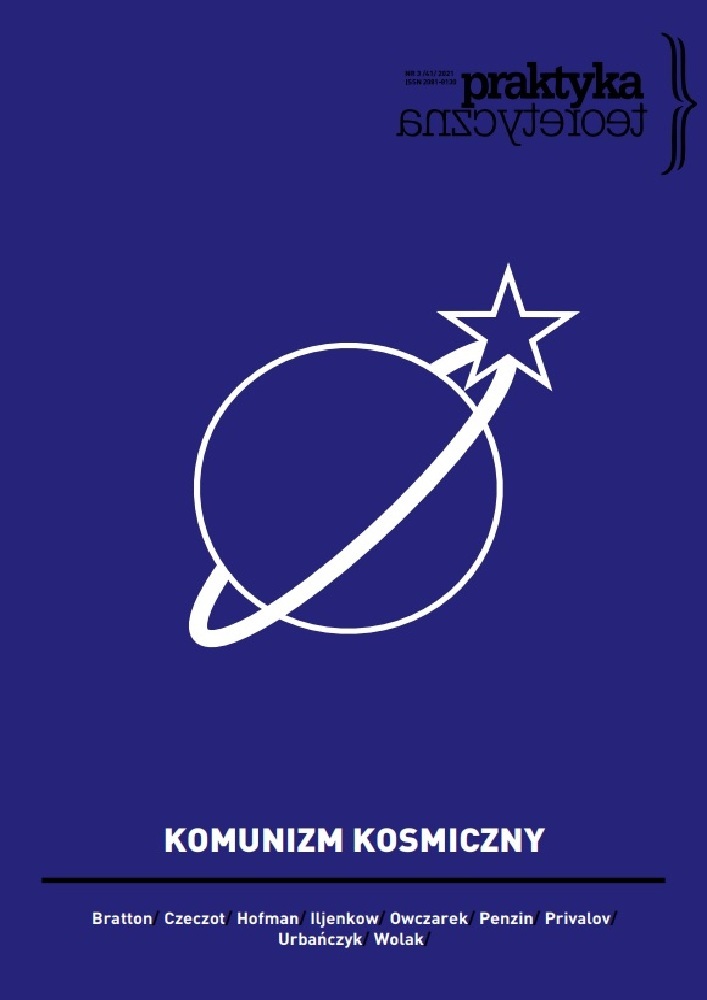Abstract
Evald Ilyenkov’s “Cosmology of the Spirit” was written in the 1950s, but published posthumously only at the end of 1980s as it was too heretical to be published during the author’s lifetime. The text was heretical not because it was “dissident” or critical of the Soviet Union where the philosopher lived all his life, but because of its enormously speculative and hypothetical nature. Addressing the physicist idea of the “thermal death of the universe,” and creating an original combination of the Hegelian dialectics and Spinoza’s notion of the attribute, Ilyenkov claims that thought (and the seemingly contingent emergence of “thinking life”) is a necessary attribute of matter, as it is able to prevent the terminal entropic collapse.
References
Engels, Fryderyk. 1972. „Dialektyka przyrody.” W Marks, Karol, i Fryderyk Engels, Dzieła, t. 20. Warszawa: Książka i Wiedza.
License
“Theoretical Practice” seeks to put into practice the idea of open access to knowledge and broadening the domain of the commons. It serves the development of science, thinking and critical reflection. The journal is published in open-access mode under the CC-BY-NC-SA 4.0 license (detail available here: http://creativecommons.org/licenses/by-nc-sa/4.0/). Articles published in the journal may be freely distributed, stored, printed and utilized for academic and teaching purposes without restrictions.
They should not be, however, used for any commercial purposes or be reconstructed into derivative creations. Access to the journal may not be limited or offered for a fee by any third party.
Prospective authors are obliged to fill in, sign and send back the publishing contract compliant with the CC licencing. [PL.pdf, PL.doc, EN.pdf,EN.doc].
According to this contract, authors grant the journal a non-exclusive right to publish their work under the creative commons license (CC-BY-NC-SA 4.0) without any financial obligation on both sides of the contract.
Before submission authors should make sure that derivative materials they use are not protected by copyright preventing their non-commercial publication. Authors are responsible for any respective copyright violations.
